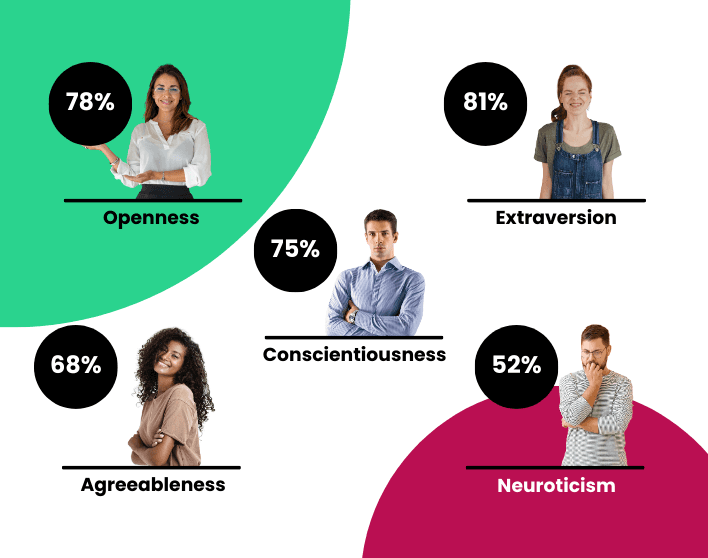Evi Antoniou
I-O Psychologist
Navigating the generational shifts within the workforce is crucial in the rapidly evolving manufacturing industry landscape. This article delves into the transformative potential of prioritizing emotional intelligence and adaptability not just to attract and retain but to revolutionize the diverse talent within manufacturing.
Within this discussion, we'll explore how soft skills assessments serve as a game-changer in identifying and cultivating these critical soft skills, paving the way for a workplace that is not only inclusive but dynamically responsive to the challenges of the future.
Deciphering Generational Shifts
Within the changing workforce landscape, there's a rising recognition of the growing importance of practical, real-world skills. Educators and hiring managers are giving more weight to soft skills, which is evident in their integration into the National Center for Construction Education and Research’s Core Curriculum (NCCER). This shift aims to redefine the construction industry as innovative, technologically advanced, and collaborative, challenging outdated perceptions of being exclusively blue-collar and associated with challenging and dirty work.
Simultaneously, the manufacturing sector is experiencing a convergence of Baby Boomers, Generation X, Millennials, and Generation Z. This dynamic amalgamation necessitates a deep understanding of each generation's distinct perspectives. Acknowledging and embracing these differences can catalyze innovation and collaboration, fostering a rich pool of talent that spans generations. This appreciation for diverse perspectives aligns seamlessly with the broader trend in the evolving workforce, with an increased emphasis on soft skills. The combining of varied viewpoints in manufacturing cultivates inclusivity and positions the sector to excel in an era that values emotional intelligence, adaptability, collaboration, and a holistic appreciation of skill sets beyond traditional stereotypes (Charles, Hurst, & Schwartz, 2019).
Elevating Emotional Intelligence (EI)
Beyond technical prowess, emotional intelligence emerges as the linchpin for success in a multi-generational manufacturing workforce. Emotional Intelligence (EI) is a multifaceted skill set encompassing the ability to recognize, understand, manage, and effectively use one's emotions and those of others. It plays a pivotal role in leadership, influencing how individuals navigate social interactions, make decisions, and manage stress. Leaders with high EI possess self-awareness and self-regulation and exhibit strong interpersonal skills, allowing them to connect with and inspire their teams. Leaders who excel in emotional intelligence foster an environment where empathy, effective communication, and conflict resolution become the bedrock of a cohesive team. The ability to navigate diverse perspectives and emotional landscapes is key to unlocking the full potential of a modern manufacturing team (Chin, 2021).
Emotional Intelligence (EI) holds substantial importance in the manufacturing sector, transcending its relevance beyond individual leadership to impact the overall dynamics of the workforce. In a manufacturing environment, effective communication, collaboration, and adaptability are paramount for operational success (Vyatkin, Fomina, & Shmeleva, 2019). Individuals with high EI in this sector demonstrate an enhanced ability to navigate the challenges inherent in the fast-paced and often unpredictable nature of manufacturing.
Within a manufacturing team, EI contributes to improved teamwork and interpersonal relationships. Employees with strong emotional intelligence can better understand their colleagues' perspectives, fostering a collaborative atmosphere. This, in turn, enhances problem-solving capabilities and promotes a more efficient production process. Moreover, individuals with high EI are better equipped to manage stress and handle the pressures associated with tight deadlines, leading to a more resilient and adaptable workforce.
Research in the manufacturing sector indicates that employees who score high in emotional intelligence are more flexible in responding to changes in their work environments and excel in creating supportive networks. These networks contribute to a positive workplace culture where individuals feel valued, understood, and motivated to contribute their best. In essence, incorporating emotional intelligence in the manufacturing sector is not just about individual skills; it's about fostering a collective mindset that enhances communication, collaboration, and overall organizational performance.
Adaptability as the Cornerstone
In the current era of relentless technological progress and frequent industry transformations, adaptability has emerged as a cornerstone competency, particularly within the manufacturing sector. The ability to swiftly adjust to evolving technologies, market demands, and operational methodologies is no longer a mere advantage but a non-negotiable requirement (Vashisht, Kaushal, & Vashisht, 2023). Manufacturing professionals who demonstrate a proclivity for embracing change become instrumental in steering organizations through uncertainties, positioning themselves as indispensable assets in the ever-shifting landscape of the industry.
Manufacturing professionals who embody adaptability respond dynamically to the rapid changes within their field. This adaptability extends beyond a willingness to learn new skills; it encompasses a mindset that embraces innovation, continuous improvement, and the proactive anticipation of industry shifts. These individuals navigate uncertainties with agility and are pivotal in driving organizational resilience. Their ability to swiftly incorporate emerging technologies, adopt new processes, and pivot in response to market demands positions the organization to thrive amidst industry upheavals, ensuring sustained growth in the face of evolving challenges.
In essence, adaptability in the manufacturing sector transcends the capacity to merely react to changes; it embodies a proactive approach to innovation and learning. Manufacturing professionals who excel in adaptability catalyze organizational growth by fostering a culture of resilience, continuous improvement, and forward-thinking. As technology continues to reshape the manufacturing landscape, adaptability remains paramount, making it an indispensable quality for professionals aspiring to lead and thrive in the dynamic and competitive manufacturing environment.

Fostering an Epoch of Inclusivity and Dynamism
Moving beyond the mere identification of soft skills, the seamless integration of emotional intelligence and adaptability into an organization's DNA has far-reaching implications. This holistic approach transcends generational boundaries, creating a workplace environment beyond acknowledging differences to actively leveraging them as strengths. By infusing emotional intelligence into daily operations, the organization cultivates an atmosphere where individuals feel recognized for their unique contributions and heard and valued for their perspectives.
In such an environment, the workforce becomes more than just a collection of employees; it transforms into a cohesive unit that adapts to change with agility and resilience. The emphasis on emotional intelligence and adaptability enables the workforce to navigate the complexities of a rapidly evolving manufacturing landscape. This ensures the organization's ability to weather industry shifts and positions it at the forefront of shaping the future of manufacturing. By fostering a culture where emotional intelligence and adaptability are celebrated, organizations empower their teams to proactively contribute to innovation, problem-solving, and sustainable growth, creating a workplace that is not only adaptive but actively influences the trajectory of the manufacturing industry.
Bryq's Revolutionary Soft Skill Analytics
A study conducted in 2023 by Heliyon emphasizes the importance of acknowledging the significance of soft skills, revealing that over 40% of the skills employers seek are classified as soft skills. In parallel, the construction and manufacturing industry is experiencing a notable transformation, wherein soft skills are pivotal in influencing this evolution. Forecasts suggest a transition towards a more holistic educational approach, acknowledging the interconnected nature of technical expertise and interpersonal competencies. This strategic shift aims to nurture professionals in the construction and manufacturing sectors who demonstrate proficiency in cutting-edge technical knowledge and exhibit essential soft skills for fostering seamless collaboration.
This is where Bryq comes into play: a groundbreaking tool designed to revolutionize talent assessment. To address each organization's unique hiring and professional development needs, Bryq has meticulously created measurable job-related competencies. These competencies can be seamlessly incorporated into assessments based on the specific role, providing a comprehensive measure of a candidate's aptitude for fitting into various areas.
For instance, competencies like Emotional Intelligence, Communication, and Team Player serve as prime examples. As highlighted earlier, these skills are intricately linked with the manufacturing sector. This granular understanding empowers organizations to tailor training programs, implement targeted development initiatives, and strategically align talent with evolving business needs.
Conclusion
In conclusion, mastering generational shifts and prioritizing soft skills like Emotional Intelligence (EI) and adaptability are crucial in the evolving manufacturing industry. These skills are essential for creating a resilient, innovative workforce prepared to tackle modern challenges. Organizations can tap into a rich talent pool through the strategic use of soft skills assessments, such as Bryq's analytics, ensuring a future-ready manufacturing sector.
By emphasizing these core competencies, leaders in manufacturing set their organizations on a path to success, ready to navigate the complexities of a competitive, technologically advanced environment. This commitment to fostering a dynamic, inclusive, and skilled workforce marks a significant step towards sustaining the industry's relevance and vitality in the years ahead.
References
Charles, K. K., Hurst, E., & Schwartz, M. (2019). The transformation of manufacturing and the decline in US employment. NBER Macroeconomics Annual, 33(1), 307-372.
Chin, S. T. S. (2021). Influence of emotional intelligence on the workforce for industry 5.0. Journal of Human Resources Management Research, 2021(2021), 882278.
Vashisht, S., Kaushal, P., & Vashisht, R. (2023). Emotional intelligence, personality variables and career adaptability: a systematic review and meta-analysis. Vision, 27(3), 316-328.
Vyatkin, A. V., Fomina, L. V., & Shmeleva, Z. N. (2019). Empathy, emotional intelligence and decision-making among managers of agro-industrial complex. The role of tolerance for uncertainty in decision-making. In IOP Conference Series: Earth and Environmental Science (Vol. 315, No. 2, p. 022081). IOP Publishing.





